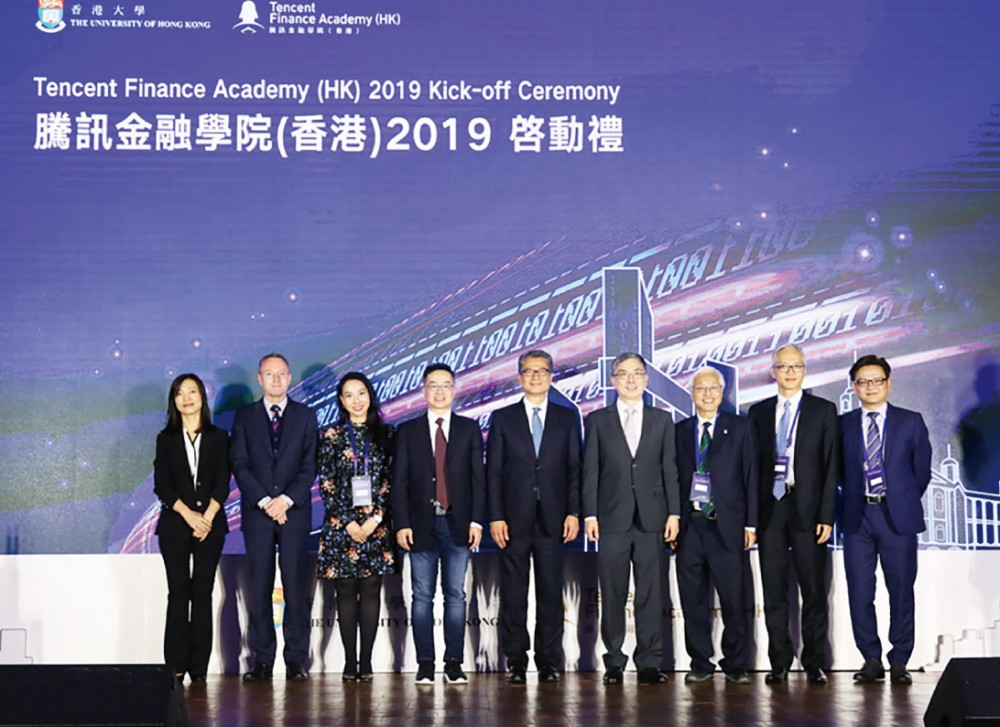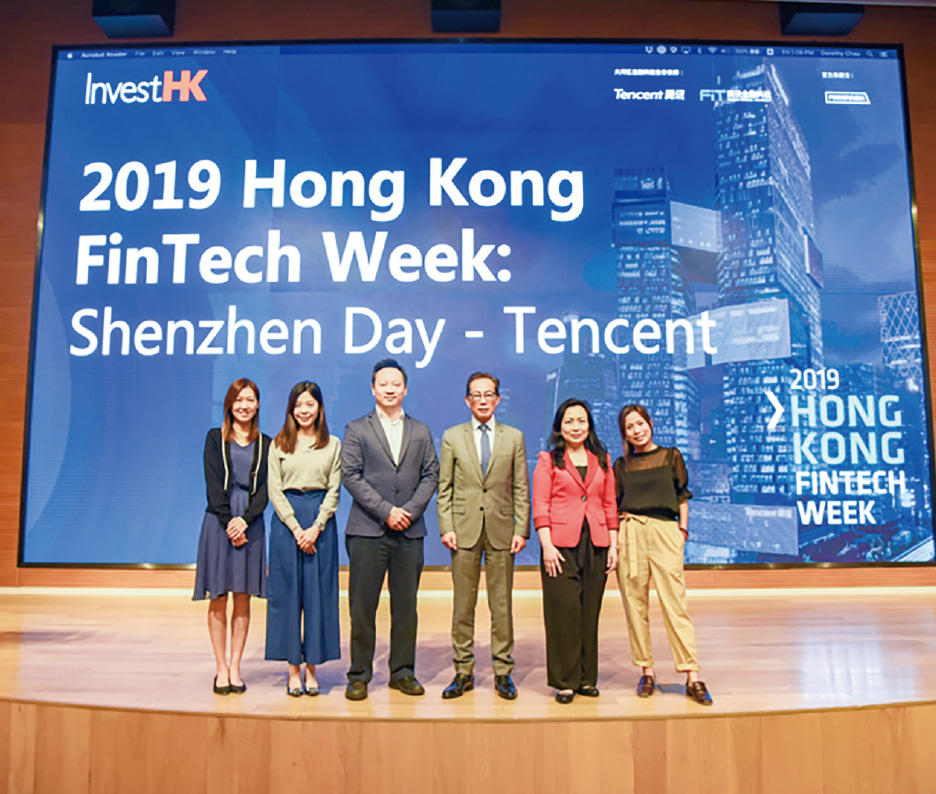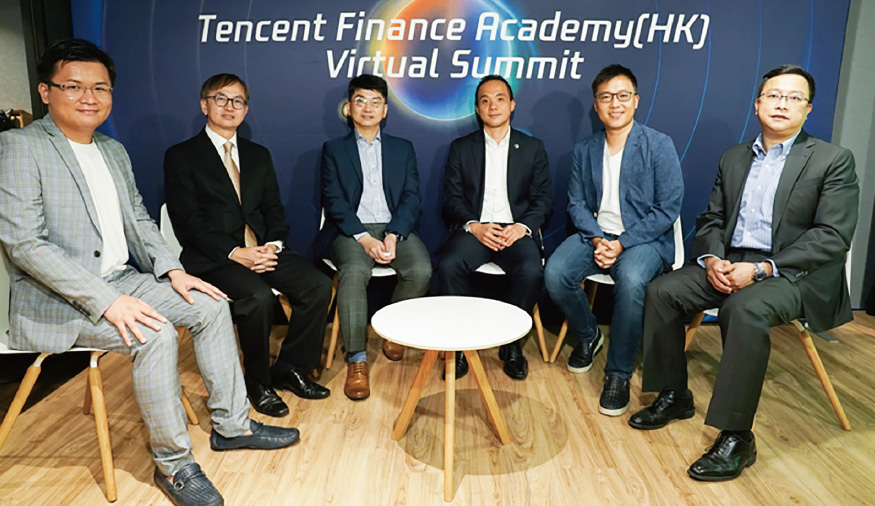Hong Kong has been vigorously developing fintech in recent years. Located in Shenzhen, a core city in the Guangdong-Hong Kong-Macao Greater Bay Area (Greater Bay Area) and under the leadership of Jim Lai, Vice President of Tencent and Dean of Tencent Financial Academy, Tencent also founded the Tencent Finance Academy in 2018 to nurture more fintech talents for Hong Kong and the Greater Bay Area helping to establish Hong Kong as a smart city.

Why is the Greater Bay Area more suitable for developing fintech comparing to other city clusters? According to Dorothy Chau, Director of Hong Kong, Macao and Cross-border Financial Affairs at Tencent and Director for Tencent Finance Academy (Hong Kong), the Greater Bay Area enjoys the advantages of countless technology giants in the Mainland cities and the sound legal system, stringent regulation and a mature financial system in Hong Kong. She believed that outcomes of multilateral collaboration could be promoted globally.
Hong Kong should seize the financial opportunities in the Greater Bay Area
 Chau explained that the smart city construction in Mainland cities such as Shenzhen are already quite mature. On the contrary, Octopus and credit cards are still the main form of payment in Hong Kong. Chau believed that as Hong Kong has its own strengths such as wide international exposure and sound systems, its prospects are still bright if it seizes the development opportunities in fintech. Chau also stressed that Hong Kong should consider the laws and business models in the Mainland and in Hong Kong when designs cross-border financial products. By integrating different culture and user habits, a wider customer base can be established.
Chau explained that the smart city construction in Mainland cities such as Shenzhen are already quite mature. On the contrary, Octopus and credit cards are still the main form of payment in Hong Kong. Chau believed that as Hong Kong has its own strengths such as wide international exposure and sound systems, its prospects are still bright if it seizes the development opportunities in fintech. Chau also stressed that Hong Kong should consider the laws and business models in the Mainland and in Hong Kong when designs cross-border financial products. By integrating different culture and user habits, a wider customer base can be established.
Building a base for grooming fintech talents
Chau pointed out that Hong Kong students have quite a strong knowledge base, but most of them are still unfamiliar with fintech. As such, strengthening education and training is a top priority. “Tencent Finance Academy (Hong Kong) was established to nurture more cross-discipline talents for the industry, such that Hong Kong could become a base for grooming fintech talents in the Greater Bay Area.”
The Academy runs a number of talent-grooming programs, including training courses, field visits, competitions, forums and mentoring schemes, etc. These were organized such that the relevant fintech experience of Tencent can be shared with students, who are also encouraged to get in-depth exposure to the development of fintech in the Mainland. By broadening their horizon through personal experience, students could better understand how technology changes user behaviour.


Improving Hong Kong’s fintech with the learning outcomes of incubators
According to Chau, courses under the talent nurturing program tend to be more practical but technical training elements are also included. Hopefully, these could advance students in all directions. Under the guidance of instructors, students would work together to complete their topical studies, develop products and take part in competitions. Winning teams could also enjoy the opportunity to continue to work at Tencent. The program did see many challenges at the beginning. For example, coordinating the timing with institutes for students to catch up with industrial development and complete their research report was quite a big problem.
Chau believed that, the talent grooming program could help propel the overall fintech development in Hong Kong. It would also bring the culture and experience of Tencent to other local financial companies. To ensure sustainability of the scheme, Tencent Finance Academy has built an alumni’s club with the Hong Kong University of Science and Technology this year, so that students who had taken part in the program can continue to exchange their views and learn with their peers and mentors. “In addition to academic advice, instructors also passed on how to handle interpersonal relationship to students. We hope that students can grow and develop during their internships and understand the value of learning in a corporate environment, as much as they learn about their own value.”





